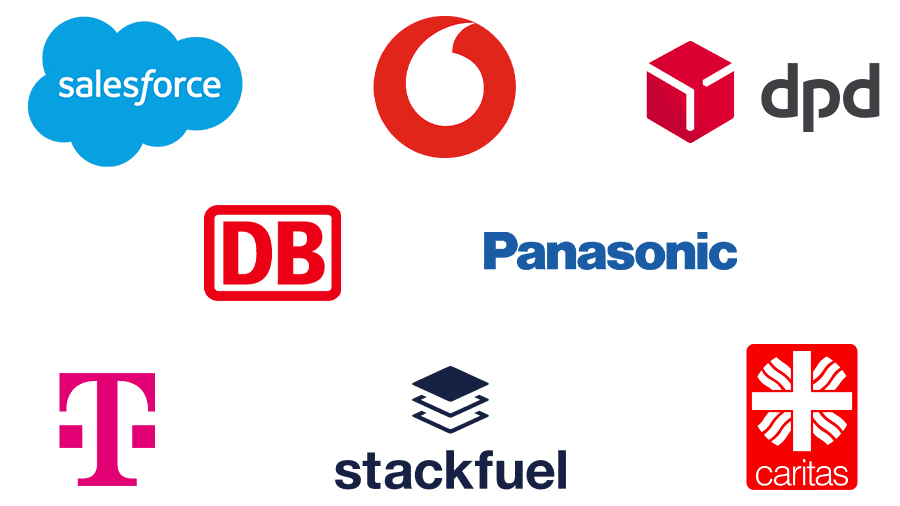
Goal Setting Strategies
ChatGPT The Goal Setting Strategies course is designed to help individuals develop effective goal-setting skills to achieve personal and professional success. Setting clear, actionable goals is essential for motivation, focus, and progress. This course typically covers various strategies and techniques for setting meaningful goals, creating action plans, and overcoming obstacles.
Overview

Goal Setting Strategies
Course Learning Objectives
Based on the course outline, here's a brief overview of the goal setting strategies, Course Learning Outcomes (CLOs), and Student Learning Outcomes (SLOs):
Goal Setting Strategies:
The course will employ several goal-setting strategies to help students set and achieve their goals effectively:
SMART Goal Setting: Students will learn to set Specific, Measurable, Achievable, Relevant, and Time-bound (SMART) goals for themselves.
Breakdown Big Goals into Smaller Ones: Students will learn to divide larger goals into smaller, manageable tasks to make progress towards achieving them.
Prioritization: Students will learn to prioritize their goals and tasks based on importance and urgency.
Regular Reflection and Evaluation: Students will regularly reflect on their progress and evaluate their goals to make adjustments as needed.
Course Learning Outcomes (CLOs):
By the end of this course, students will be able to:
CLO 1: Identify and articulate their personal goals and values
CLO 2: Set SMART goals and create a plan to a
achieve them
CLO 3: Prioritize tasks and manage time effectively
CLO 4: Reflect on their progress and adjust their goals as needed
Student Learning Outcomes (SLOs):
By the end of this course, students will be able to:
SLO 1: Demonstrate an understanding of the importance of goal setting in achieving personal and professional success
SLO 2: Apply effective goal-setting strategies to achieve their goals
SLO 3: Develop a growth mindset and be open to feedback and adjustment
SLO 4: Cultivate a sense of purpose and direction in their personal and professional lives
These CLOs and SLOs serve as a foundation for the course, guiding the instruction and assessment of student learning throughout the semester.

Benefits
With AI, the world is your oyster! It is an emerging field, rapidly growing, ever evolving and watched with a keen eye by industries and markets globally. There are many benefits to an education in AI:
In demand Career
With a Bachelor in artificial intelligence you are equipped with in-demand skills in the rapidly growing field of AI. Knowledge of developing AI systems, data analysis and AI techniques makes you valuable across industries, right from healthcare, finance, tech and more. This degree prepares you for career that has multiple options for diversification. AI professionals include AI engineers, data scientists, machine learning specialists, AI consultants, researchers and more. AI is transformative technology that is revolutionising the world. With an education background in AI, you are set up in an in-demand career field with an exciting future ahead!
Innovation and advancement
Applied AI is all about finding solutions and using AI systems to make life simpler. Applied AI draws on its solid foundation in Computer Science to analyse and provide solutions for real world challenges. You are prepared to address complex problems and contribute meaningfully in domains like healthcare diagnostics, fraud detection, autonomous vehicles, personalised recommendations and more. Being able to apply AI techniques for solving tasks makes for an extremely rewarding and impactful job role!
Solving real world problems
AI aims to constantly bridge the gap between natural intelligence and machine learning - it is a field of cutting edge research, innovation and advancing technology. This makes it ever evolving, with new algorithms, models and techniques being developed. By studying AI at an undergraduate level, you gain a strong foundation in AI fundamentals that help you better understand the latest advancements. You step into a career that empowers you to push the boundaries of AI, contribute to research and development and drive innovation in the field.
100% International
Study at your own pace from anywhere in the world
Recommended by 96% of our graduates
According to our latest alumni survey
50,000+ students
enrolled in Germany’s largest university
Study contents
Contents
1. SMART Goals
Specific: Clearly define what you want to achieve.
Measurable: Quantify your goal so you can track progress.
Achievable: Make sure your goal is realistic and attainable.
Relevant: Align your goal with your values and priorities.
Time-bound: Set a specific deadline for achieving your goal.
2. Break Down Big Goals into Smaller Ones
Divide large goals into smaller, manageable tasks to make progress and stay focused.
3. Create an Action Plan
Identify the steps needed to achieve your goal.
Prioritize tasks based on importance and urgency.
Set deadlines for each task.
Identify potential obstacles and develop contingency plans.
4. Set Key Performance Indicators (KPIs)
Identify metrics that will measure progress towards your goal.
Track KPIs regularly to stay on track and adjust course as needed.
5. Create a Timeline
Establish a schedule for achieving your goal.
Break down larger goals into smaller, shorter-term tasks.
Set deadlines for each task.
6. Get Accountability
Share your goals with a friend or mentor.
Find an accountability partner to provide support and encouragement.
Regularly report progress to maintain motivation.
7. Celebrate Milestones
Recognize and celebrate progress along the way.
Reward yourself for achieving milestones.
Reflect on what worked well and what didn't to adjust future goals.
8. Be Flexible
Life can be unpredictable, and circumstances may change.
Be willing to adjust your goals and plan as needed.
9. Focus on Progress, Not Perfection
Don't get discouraged by setbacks or minor failures.
Focus on making progress, not achieving perfection.
10. Use Positive Self-Talk
Use positive affirmations to motivate yourself.
Encourage yourself with positive self-talk when faced with challenges.
11. Identify Potential Obstacles
Anticipate potential obstacles and develop contingency plans.
Identify potential distractions and avoid them.
12. Stay Focused on Your Why
Remind yourself why you're working towards your goal.
Keep your "why" in mind to maintain motivation.
13. Seek Professional Help When Needed
Don't be afraid to seek help from professionals, such as coaches or mentors.
Use their expertise to overcome challenges and stay on track.
14. Stay Organized
Use tools such as calendars, planners, or apps to stay organized.
Prioritize tasks and focus on the most important ones first.
15. Practice Mindfulness
Stay present and focused on the present moment.
Avoid distractions and stay motivated by staying mindful.
These goal setting strategies can help you achieve your goals by providing a clear direction, staying focused, and overcoming obstacles along the way.
Admission
Admission Criteria
SMART Goal Setting:
Make sure your goals are Specific, Measurable, Achievable, Relevant, and Time-bound. For example, instead of "I want to improve my grades", set a specific goal like "I want to increase my GPA by 0.5 points within the next semester".
Set Both Short-Term and Long-Term Goals:
Break down large goals into smaller, manageable tasks to help you stay focused and motivated. For example, if your long-term goal is to get accepted into a top-ranked university, your short-term goals might be to take challenging courses, seek out opportunities to build your skills, and research potential programs.
Make Your Goals Positive and Focused on Addition:
Instead of focusing on what you want to avoid (e.g., "I don't want to fail"), focus on what you want to achieve (e.g., "I want to pass all my exams").
Write Down Your Goals: Write down your goals and review them regularly to track your progress and stay motivated.
Create an Action Plan: Break down each goal into smaller, actionable steps that you can take to achieve it.
Celebrate Your Progress: Celebrate your progress and achievements along the way to stay motivated and encouraged.
Get Support: Share your goals with a trusted friend, family member, or mentor and ask for their support and encouragement.
Be Flexible: Be open to adjusting your goals as circumstances change or new opportunities arise.
Example of Admission Goal Setting:
Long-term goal: Get accepted into a top-ranked university
Short-term goals:
Take challenging courses in math and science
Volunteer at a local hospital or research center to gain experience in the field
Research potential programs and reach out to current students or alumni for advice
Take practice tests and seek feedback from teachers or tutors
Apply to 3-5 target universities by the application deadline
Careers
Career Paths
Here are some careers that involve goal setting strategies:
Coaches: Life coaches, business coaches, wellness coaches, and career coaches all help clients set and achieve their goals.
Managers: Effective managers set goals for their teams and individuals, and develop strategies to achieve them.
Entrepreneurs: Entrepreneurs set goals for their businesses, whether it's to launch a new product, expand into new markets, or increase revenue.
Consultants: Management consultants, strategy consultants, and organizational development consultants help organizations set and achieve their goals.
Trainers: Corporate trainers and performance consultants develop training programs that help employees set and achieve their goals.
Performance Improvement Specialists: These professionals work with individuals and teams to identify areas for improvement and develop strategies to achieve goals.
Executive Assistants: Executive assistants often support executives in setting and achieving their goals.
Project Managers: Project managers oversee projects from start to finish, setting milestones and deadlines to ensure successful outcomes.
Sports Coaches: Sports coaches develop training plans and strategies to help athletes achieve their goals, whether it's winning a game or improving their performance.
Personal Trainers: Personal trainers work with clients to set fitness goals and develop customized workout plans to achieve them.
Mentors: Mentors guide mentees in setting and achieving their personal or professional goals.
Account Managers: Account managers in sales, marketing, or business development set goals for client relationships and develop strategies to achieve them.
Operations Managers: Operations managers set goals for efficiency, productivity, and quality, and develop strategies to achieve them.
Business Analysts: Business analysts identify business needs and develop solutions to achieve strategic goals.
Change Management Professionals: Change management professionals help organizations set goals for change initiatives and develop strategies to implement them successfully.
Talent Development Specialists: Talent development specialists work with employees to set career goals and develop plans to achieve them.
Learning and Development Professionals: Learning and development professionals design training programs that help employees set and achieve their professional development goals.
Student reviews
Coming Soon.
Tuition fees
All our study programmes include the following benefits
- Teaching and study material
- Marking of your end-of-module exams
- Monthly live and recorded tutorials
- Use of the online campus
- Individual study coaching
- Online exams
- Career coaching
- Learn English for free
Our global recognition

IU is recognised by WES Canada and U.S., which means your degree can be converted to points in the local system for purposes of immigration, work, or studies.

As the first EU institution in UNESCO's Global Education Coalition, IU is committed to ensuring accessible quality education to students in crisis worldwide through free online micro-credentials.
Our company partners

For over 20 years, IU has established partnerships with leading global companies. This offers you the chance to gain firsthand experience through internships and projects and allow us to adapt our learning content to the ever-evolving needs of the labour market. You'll benefit from an education designed to bridge the gap between theory and real-world practice, ensuring your readiness for your future career.
Recognition
Recognition of previous achievements
Have you already completed a training course, studied at a university or gained work experience? Have you completed a course or a learning path through EPIBM LinkedIn Learning, and earned a certificate? Then you have the opportunity to get your previous achievements recognised, and complete your studies at EPIBM sooner.

Save time:
Skip individual modules or whole semesters!
Even before you apply for a study programme, we’ll gladly check whether we can take your previous achievements into account: 100% online, no strings attached. Simply fill in our recognition application form, which you can find under the content section of each study programme's webpage, and upload it via our upload section. You can also e-mail it to us, or send it via post.
Send an email to [email protected] to find out which previous achievements you can get recognised. You can get your previous achievements recognised during your studies.
Recognition files
Autonomous vehicles developer
With AI, the world is your oyster! It is an emerging field, rapidly growing, ever evolving and watched with a keen eye by industries and markets globally. There are many benefits to an education in AI:
That’s why after graduating, you’ll be able to apply your professional skills and knowledge, and work for development teams at any sector you find appealing.


Augmented reality (AR/VR) developer
Virtual (or augmented) reality isn’t all just fun and games, as great and enjoyable as that aspect is. It can also be used for groundbreaking social and psychological research, defensive purposes and therapy.
With an Applied Artificial Intelligence degree from IU University of Applied Sciences, you can take part in this vital field of technological development, and work on a wide variety of interesting projects.
Change what the world thinks about the possibilities that AI offers, and make a real difference in people’s lives, while enjoying every step of the process.
F.A.Q
Frequently Asked Questions
You might also be interested in these study programmes
Accredited and certified













